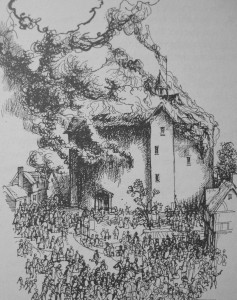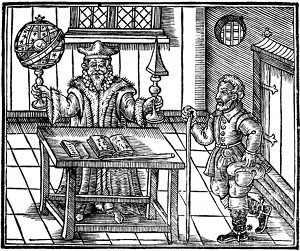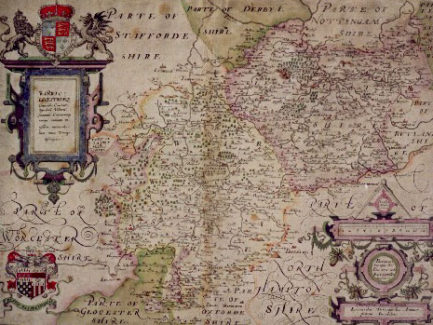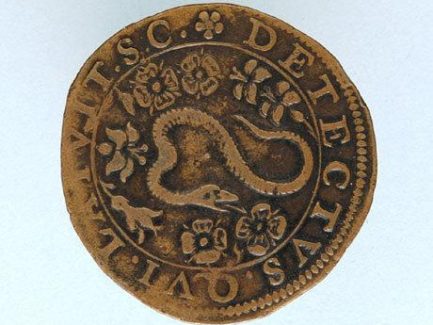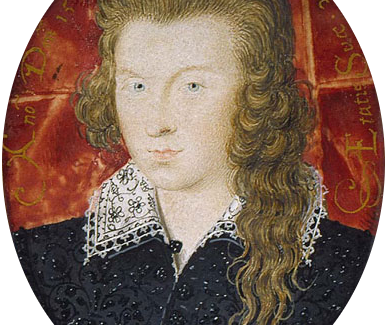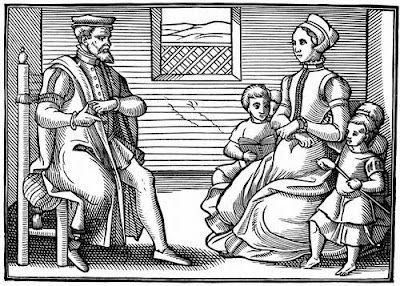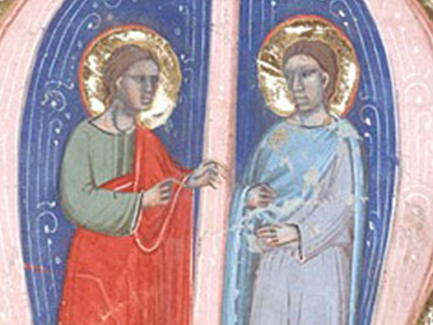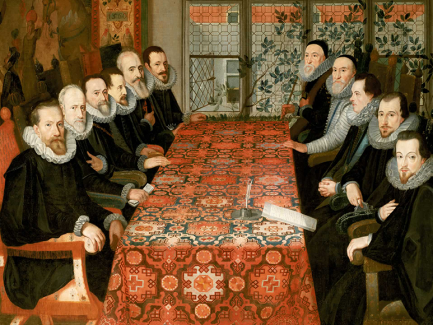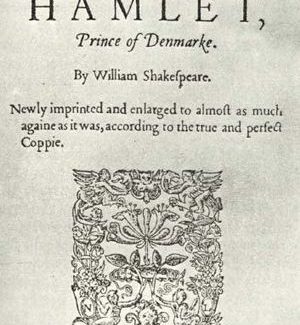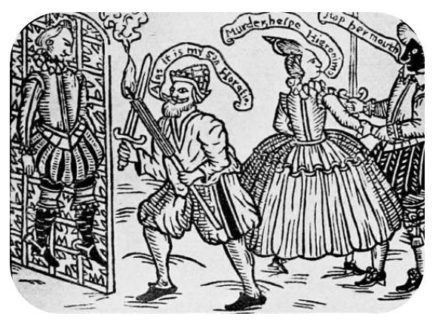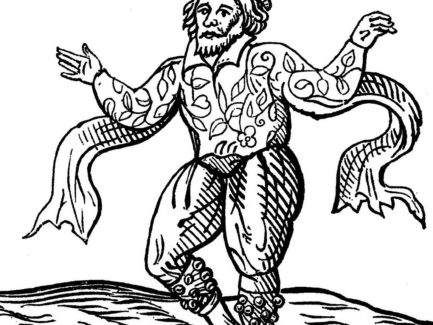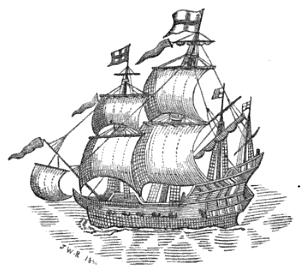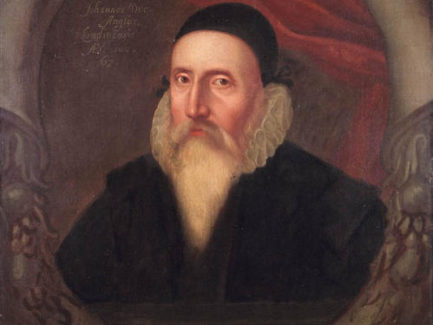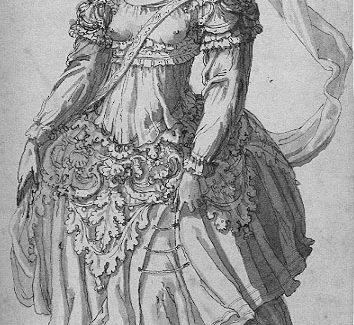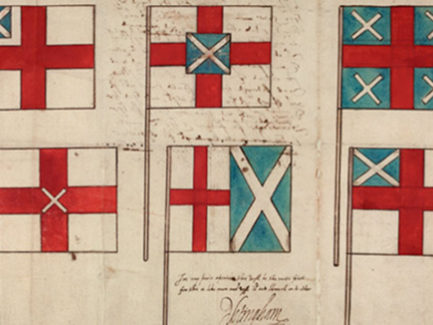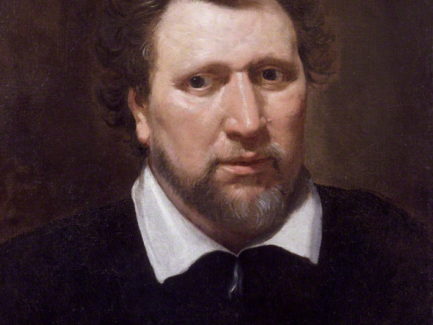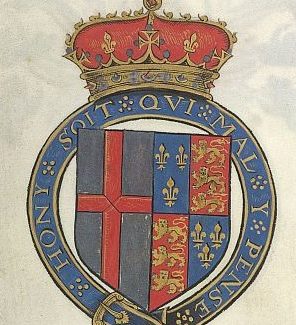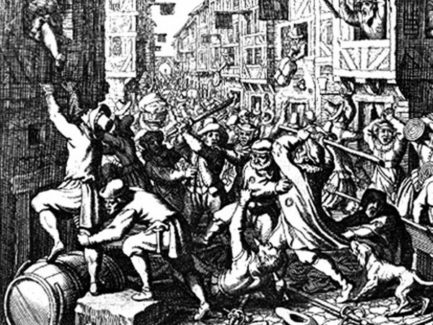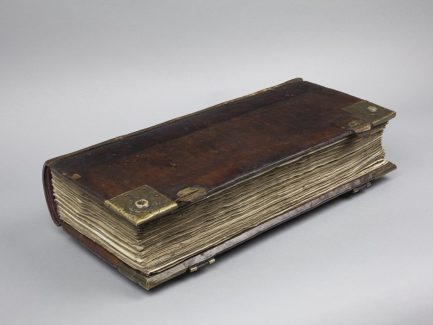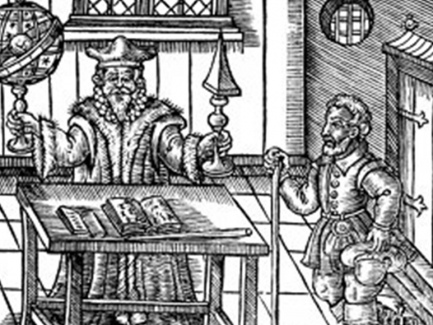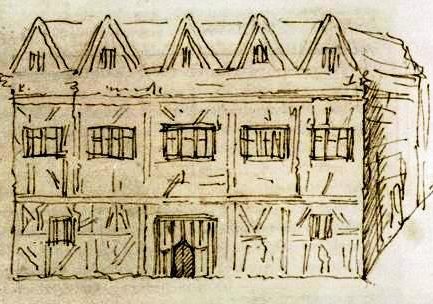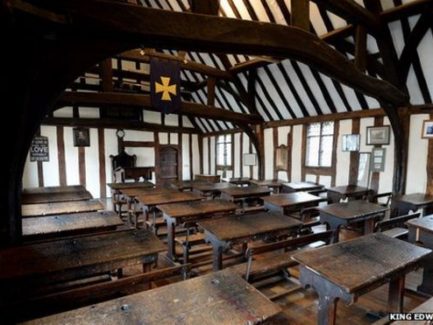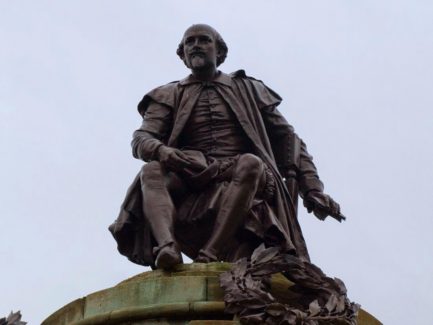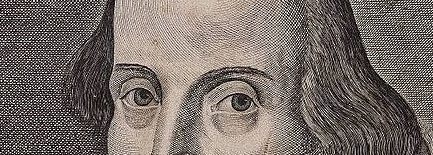Was this the model for Polonius?

Lord Burghley, Secretary of State under Elizabeth I, wrote a short manual for his son as he set off on his youthful travels to France. It was titled Memorial for Thomas Cecil (1561) and was full of detailed advice regarding his spiritual welfare, his clothing and his behaviour:
If you offend in forgetting of God by leaving your ordinary prayers or suchlike, if you offend in any surfeiting by eating or drinking too much, if you offend any other ways by attending and minding any lewd and filthy tales or enticements of lightness or wantonness of body, you must at evening bring both your thoughts and deeds as you put off your garments, to lay down and cast away those and all suchlike that by the devil are devised to overwhelm your soul.
Unfortunately, the dissolute young man was not known for his ability to put his father’s advice into practice. Nor was he known for his political skill or his ability to follow in his father’s footsteps, unlike Lord Burghley’s second son, Robert Cecil, who would become Secretary of State and Lord Privy Seal under Elizabeth I. Lord Burghley also wrote a similar book of advice for Robert titled Certain Precepts for the Well Ordering of a Man’s Life (1584). Among the advice, which covered his choice of wife, his chosen profession, his future family and his finances, is the following advice:
Neither borrow money of a neighbour or friend but rather from a mere stranger, where paying for it thou mayest hear no more of it, for otherwise thou shalt eclipse thy credit, lose thy freedom, and yet pay to him as dear as to the other. In borrowing of money be ever precious of thy word, for he that cares to keep day of payment is lord commander many times in another man’s goods.
Wise and sententious sayings like those given by Lord Burghley to his sons are included in many of Shakespeare’s plays. Polonius, in Hamlet, gives similar advice to his son Laertes as he goes abroad. Polonius seems to be most like Lord Burghley, and his advice is a compilation of wise proverbs and useful sayings in a similarly didactic style. The character could almost be a parody of the English statesman:
There, my blessing with thee.
And these few precepts in thy memory
Look thou character. Give thy thoughts no tongue,
Nor any unproportioned thought his act.
Be thou familiar but by no means vulgar.
Those friends thou hast, and their adoption tried,
Grapple them unto thy soul with hoops of steel,
But do not dull thy palm with entertainment
Of each new-hatched, unfledged comrade. Beware
Of entrance to a quarrel, but being in,
Bear ’t that th’ opposèd may beware of thee.
Give every man thy ear but few thy voice.
Take each man’s censure but reserve thy judgment.
Costly thy habit as thy purse can buy,
But not expressed in fancy (rich, not gaudy),
For the apparel oft proclaims the man,
And they in France of the best rank and station
Are of a most select and generous chief in that.
Neither a borrower nor a lender be,
For loan oft loses both itself and friend,
And borrowing dulls the edge of husbandry.
This above all: to thine own self be true,
And it must follow, as the night the day,
Thou canst not then be false to any man.
(Act 1 Scene 3)
© 2019 Shakespeare’s World
To read more about this topic and other events on this day in Shakespeare’s lifetime, you can see our recommendations for further reading and visit our website to buy Shakespeare’s World App or to follow us on social media.




